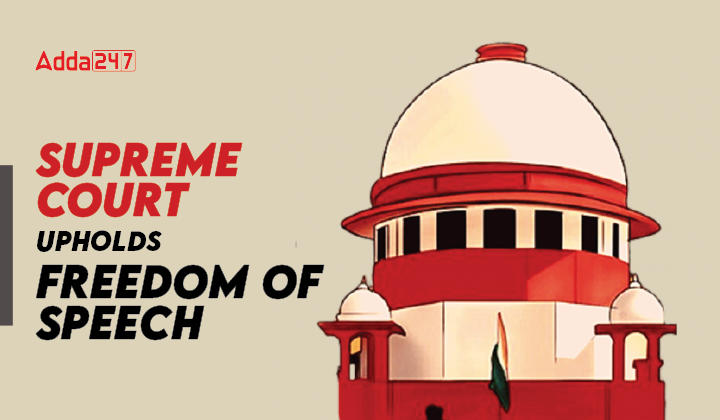Table of Contents
In a landmark move, the Supreme Court of India has recently issued a stern warning to courts across the nation, urging them to exercise caution when granting pre-trial injunctions against media outlets in defamation suits. This directive comes as a vital reminder of the foundational principles that underpin the freedom of speech and the public’s inherent right to information. The Court’s emphasis on the potential stifling impact of injudicious interim injunctions on public discourse is both timely and significant.
Judicial Restraint and Free Press
The Supreme Court’s caution against the mechanical application of the criteria for interim injunctions — prima facie case, balance of convenience, and the risk of irreparable loss — serves as a crucial judicial directive. It mandates that courts must provide reasoned judgments based on factual analysis, thereby upholding the essence of justice and fairness.
Challenging Gag Orders and Prior Restraints
The frequent issuance of gag orders, omnibus prior restraint directives, and specific mandates for media take-downs raise significant concerns about undue restrictions on journalistic practices. Such measures, unless critically examined, can severely hamper the media’s role as a watchdog and its duty to inform the public.
Bonnard vs Perryman: A Common Law Beacon
The Supreme Court’s reference to the landmark common law principle established in Bonnard vs Perryman underscores the high threshold for granting injunctions in defamation cases. This principle rightly posits that an injunction should only be considered if the defamatory nature of the content is unequivocal and the possibility of justifying the publication during the trial, through defenses such as truth and public interest, is null.
The Threat of ‘SLAPP’ Tactics
Highlighting the menace of ‘SLAPP’ (Strategic Litigation/Lawsuit Against Public Participation), the Court’s order sheds light on how entities wielding influence and economics might often resort to litigation as a means to silence critique. Such tactics, aimed at intimidating and burdening critics with legal battles, pose a grave threat to free speech and democratic engagement.
The Verdict: Preserving Press Freedom
The Supreme Court’s stern admonition serves as a judicial bulwark against premature injunctions that act as a ‘death sentence’ for journalistic content. By upholding the principles of free speech and press liberty, the Court reaffirms its commitment to ensuring an informed and vibrant democracy.
Institutions play roles in protecting press freedom
- Press Council of India (PCI): Established under the Press Council Act, 1978, the PCI serves as a statutory body responsible for safeguarding and promoting press freedom while maintaining ethical standards in journalism.
- Ministry of Information and Broadcasting: This governmental body formulates policies and guidelines concerning the media sector in India, contributing to the regulatory framework within which press freedom operates.
- News Broadcasters Association (NBA): As a self-regulatory body representing private television news and current affairs broadcasters, the NBA formulates and enforces a code of ethics and standards for television news channels, fostering accountability and responsible journalism.
- Editors Guild of India: Comprising editors from leading newspapers and news magazines, this voluntary association plays a pivotal role in defending press freedom and addressing issues concerning the rights and responsibilities of journalists.
- Legal System: India’s judiciary, including the Supreme Court and other courts, plays a crucial role in upholding press freedom. Through its authority to address violations, protect journalists, and interpret media-related laws, the legal system serves as a bulwark for press freedom.
- International Organizations: Global entities like Reporters Without Borders (RSF) and the Committee to Protect Journalists (CPJ) monitor press freedom in India, highlighting violations and raising awareness internationally.
Conclusion: A Victory for Democratic Discourse
The Supreme Court’s recent directive is a resounding affirmation of the fundamental rights enshrined in the Constitution. It reinforces the judiciary’s role in protecting press freedom and encourages a balanced approach to defamation suits, thereby safeguarding the pillars of democratic discourse and public awareness.



 TSPSC Group 1 Question Paper 2024, Downl...
TSPSC Group 1 Question Paper 2024, Downl...
 TSPSC Group 1 Answer key 2024 Out, Downl...
TSPSC Group 1 Answer key 2024 Out, Downl...
 UPSC Prelims 2024 Question Paper, Downlo...
UPSC Prelims 2024 Question Paper, Downlo...
